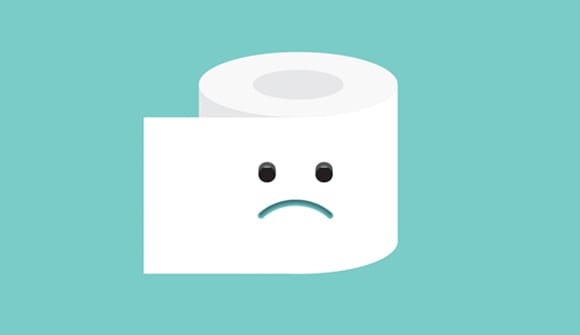‘OK Google’
2019’s most ‘Googled’ health questions (and answers)!
Article Author: Wesley Roberts
Article Date:

From hiccups to hangovers, we often turn to Dr. Google to answer our health questions. Now that we’ve entered the 2020, we’re taking a look back at 2019’s most “Googled” health questions and giving you quick, reliable answers from our physicians.
1. How to lower blood pressure?
High blood pressure (hypertension) is a serious condition, known as the “silent killer” because often people have no symptoms. Hypertension affects one in three American adults. Controlling high blood pressure helps reduce the risk of heart disease. In some cases, diet and exercise can help lower blood pressure. Other times, you may need medications. Quick tips to prevent or lower high blood pressure include:
- Lose weight (if you need to)
- Cut back on salt
- Limit alcohol intake
- Eat a diet rich in fruits and vegetables
Work with your doctor to find a plan that’s right for you.
2. What is keto?
“Keto is a short term to describe the ketogenic diet,” explained Tristan Imhof, MD, family physician with Baptist Primary Care. “Because carbohydrates are significantly restricted on this diet, the body enters into a metabolic state (ketosis) where the body relies on fats for energy rather than sugar.”
3. How to get rid of hiccups?
Hiccups can be a total annoyance! There is no sure way to stop hiccups. However there are home remedies and suggestions you can try, including downing a teaspoon of sugar, drinking a glass of cold water or holding your breath. Contact your doctor if your hiccups last for more than a few days.
4. How long does the flu last?
“Symptoms for the flu usually last between 3-7 days,” said Dr. Imhof. “Fever and the most severe symptoms may be resolved within a few days, but low energy and cough can last much longer.”
5. What causes hiccups?
Hiccups can often start for no apparent reason and without a cause. They’re even normal in newborns and infants. However, some common links to hiccups include eating too quickly, eating hot and spicy foods, stress or swallowing air. More serious causes include stroke; a tumor affecting the brain; harmful fumes; or a disease that irritates the nerves that control the diaphragm.
6. What causes kidney stones?
There are different types of kidney stones and the cause depends on the type. Stones form when urine contains too much of a certain substance that forms crystals. Calcium stones are the most common and are most likely to occur in men between the ages of 20 and 30. The biggest risk factor for kidney stones is not drinking enough fluids. They are most likely to occur if you make less than one liter of urine a day.
7. What is HPV?
HPV is a sexually transmitted infection that can cause genital warts. In some people, HPV infection becomes persistent, and that can eventually leads to cervical cancer, or tumors of the vagina, penis, anus and throat.
“HPV vaccine is designed primarily to protect women against cervical and vaginal cancers. In addition, it affords protection against penile cancers and laryngeal papillomas (a medical condition in which benign tumors grow along the aerodigestive tract),” explained Mobeen Rathore, MD, pediatric infectious disease specialist at Wolfson Children’s Hospital. “Therefore, the vaccine is most beneficial if given prior to the time a woman becomes sexually active. For the same reason, males also need to be protected from HPV with the use of the HPV vaccine.”
8. How to lower cholesterol?
“It's important to understand a little more about cholesterol in terms of its benefits and harms to the body,” said Dr. Imhof. “LDL cholesterol is the ‘bad cholesterol’ we seek to lower in order to minimize cardiovascular events in the future. HDL cholesterol, on the other hand, is beneficial to the body and, when calculating your risk of heart disease, serves to reduce risk when it is elevated.”
In most individuals, lowering LDL and increasing HDL can usually be managed through dietary modifications. However, other individuals have a genetic predisposition to elevated cholesterol and may require medications such as statins to lower their cholesterol levels, in addition to proper diet and exercise.
Limiting your intake of animal product, such as meat, dairy and eggs, has been found to be beneficial in lowering LDL and increasing HDL. Ongoing studies of newer diets and their long- term effects on cholesterol may provide more answers in the future.
9. How many calories should I eat in a day?
“This depends on many variables, but for individuals with a normal body mass index (BMI), and who are participating in regular daily activity and eating a balanced diet, the standard daily caloric intake is set to 2,000 calories per day. This is what all food labels are calibrated to by percentage,” said Dr. Imhof. “When individuals deviate from the normal standards, the daily caloric recommendation may change drastically.
In a time where the majority of the population falls into an overweight or obese category, it’s important to work with your doctor to discuss caloric modifications. For example, the daily caloric intake for these individuals should balance out to less than 2,000 calories per day, accounting for calories earned from increased exercise.
Dr. Imhof recommends calorie-counting apps for his patients who may need to lose weight. “These allow individuals to input current data, goals and time period. From there, the app recommends how many calories per day they should consume.”
10. How long does alcohol stay in your system?
If you drink alcohol, it’s best to do so in moderation. The recommendation from the Centers for Disease Control and Prevention (CDC) is a maximum of one drink for women per day and two drinks for men per day.
According to the CDC, the liver can only metabolize a small amount of alcohol at a time. Excess alcohol circulates throughout the body and blood stream. On average it takes one hour to metabolize one standard drink.
Search engine results can deliver thousands of pages of information. How do you know what’s correct? We’d recommend turning to your primary care physician. He or she knows YOU and your health history and can provide you with the most accurate advice.
Need a primary care physician who’s right for you? Call 904.202.4YOU(4968) or visit baptistjax.com/request.



